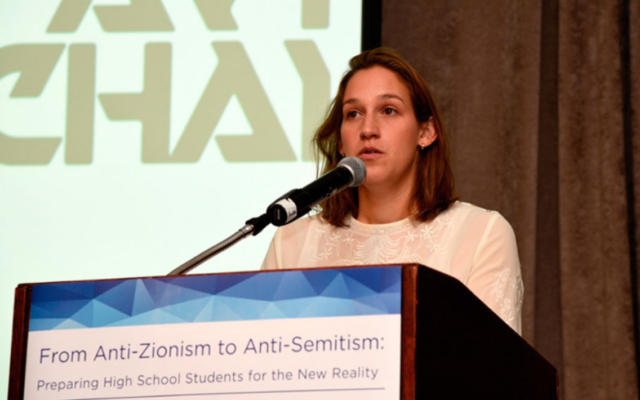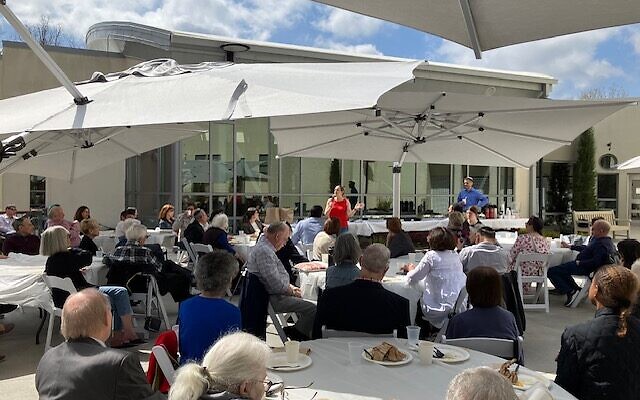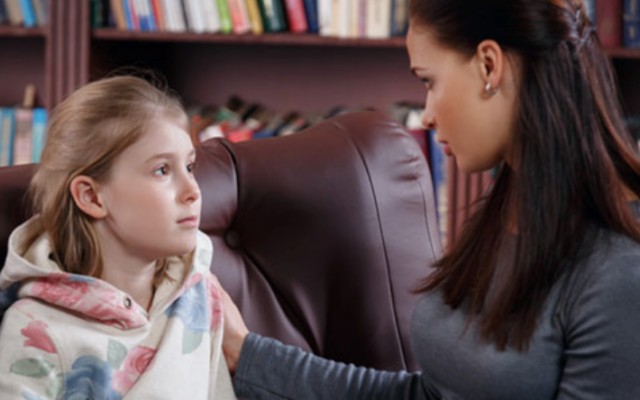Sinai Program Tackles Schoolyard Antisemitism
Visiting scholar Rachel Fish maintains that part of the problem is the generation gap between young people and their parents.

Temple Sinai in Sandy Springs recently welcomed Rachel Fish, PhD as a scholar-in-residence for a weekend of discussions around the current challenges of antisemitism in America and particularly, how they are affecting young Jews.
Fish is a historian of Israeli history and Zionist thought who has taught at Brandeis University, Harvard University, and George Washington University, respectively. She has led the Schusterman Center for Israel Studies — a leading institute to train the next generation of academics in their studies of Israel. She is also the founder of what she describes as a think/action center based in Boston called Boundless that is focused on re-imagining Israel education and combating Jew-hatred. She also led an initiative at Brandeis that focused on countering antisemitism in K-12 educational institutions and in higher education.
The AJT asked her what her experience had been in working with young people at Temple Sinai.
Fish: Most young people were very eager to share. They feel that those who have had experiences at school and have gone to their school administration that for the most part, the school administrations have been unwilling to do anything. Most have not been accountable, and some have been negligent. I think these students are looking for spaces in which they can actually process what they may be encountering, what they’re hearing, how it impacts them and their identity and their connections to people they thought were friends with them but may not be. I think they’re looking for specific skills. And we talked about some of those skills.

Bahr: What would you say that young people need to remember about confronting antisemitism?
Fish: So, one is I think that we have to remember as Jews that most people truly are “don’t knows.” Meaning they actually have very little interactions and encounters with Jews, with Judaism, and with the Jewish state. It doesn’t excuse their ignorance, but it does mean that the way in which you address it is different because you need to be able to have some education so that they can become “knows” and have more information.
The second is that I prefer to use the term “Jew hatred” specifically when I do encounter acts of antisemitism coming from non-Jews, because Jew hatred is a much more clear understanding of what they are doing.
The third is when those individuals are acting in a way where it is clear they are engaging in a form of Jew hatred, you can expose them for exactly who they are.
Number four, I think, is we have to be very particular with word choice. And that means we need our own community to be knowledgeable enough about those words and the history of those words, and the intent of those words, so that they feel they can actually use them. And use them appropriately.

Bahr: How is the experience of young people different from their parents?
Fish: Well, I think that the parents of basically a generation of American Jews … grew up during an exceptional period of American Jewish life. That generation of American Jews does not have practice in confronting antisemitism. They don’t know how to talk about it, how to engage with it, how to navigate it. And that poses a very real challenge when their own children now are encountering it because when their children come to them, they don’t know what to do. And they typically have outsourced this work to others — whether it’s rabbis, whether it’s Jewish educators, whether it’s Jewish communal organizations. And this can’t be outsourced. The students, the young people, need to see their parents having the moral courage and model for them how you address these issues.
And I think we are now in a moment in which there is a reckoning that we aren’t as comfortable as we thought we were. We aren’t as accepted as we thought we had been. And because of that it has shaken many American Jews because they don’t feel like they have the friendships, the allies, or the political homes that they used to feel they had.
Bahr: Anything else to add?
Fish: I guess I would only just say, when it is clearly a form of antisemitism, we should not be afraid to address it. Too often, I think the American Jewish community is reluctant to actually say what needs to be said. And that’s a problem. And I would argue that this is when we need individuals and leaders of the community to be willing to stand with clear moral clarity and moral courage to speak truth to power.



comments